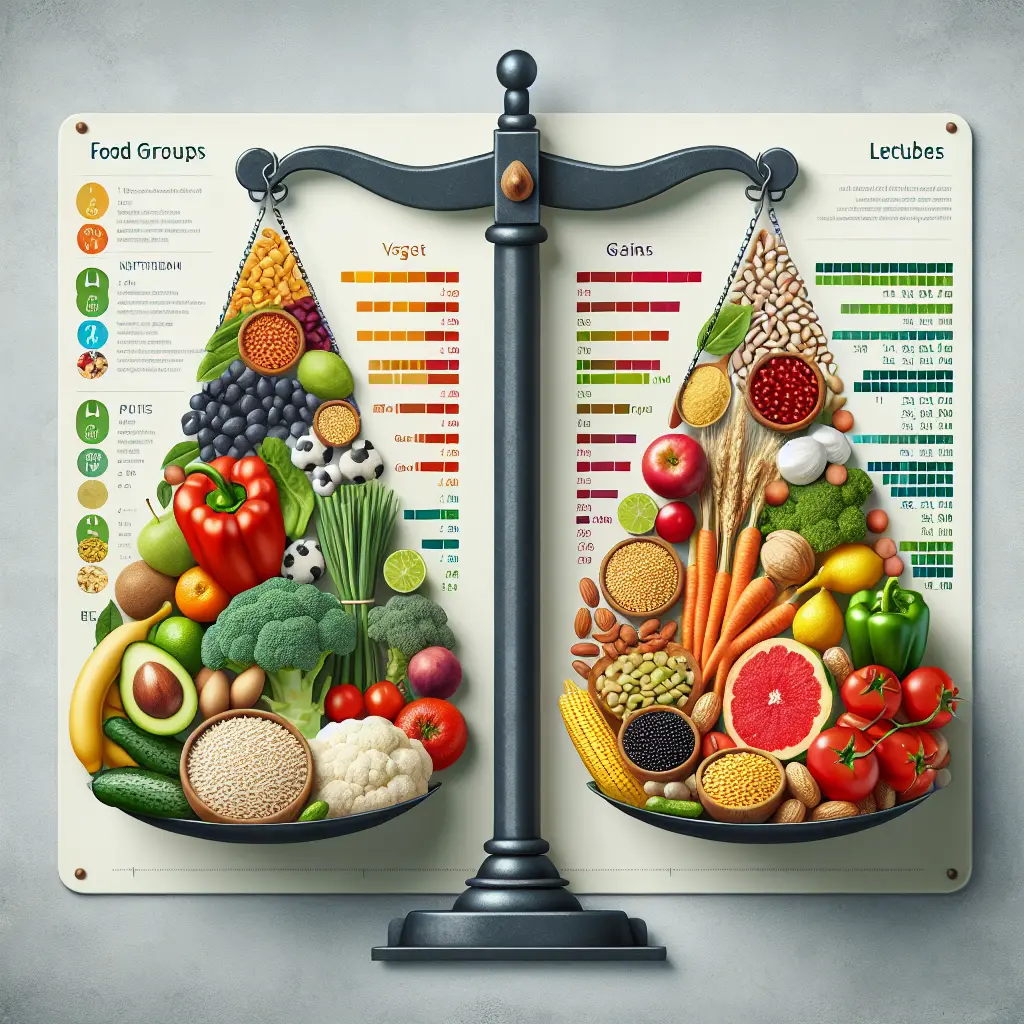
As the plant-based movement continues to thrive, misconceptions about the vegan diet are being dismantled one plate at a time. From jacked vegan powerlifters proving strength doesn't just come from animal protein, to brands adapting to the new food revolution, a vegan diet is not just a trend but a sustainable lifestyle choice. Ensuring a balanced vegan diet involves understanding vegan nutrition, incorporating a variety of plant-based nutrients, and planning your meals mindfully. Here's how you can embrace a complete vegan diet that supports your health and the planet.
1. Understanding Vegan Nutrition
A balanced vegan diet provides all essential nutrients needed for optimal health. Vegan protein sources, vitamins, and minerals can be abundantly found in plants. However, careful planning is necessary to cover the spectrum of nutrition. Vegan meal planning is not just about choosing vegan food choices but selecting nutrient-dense options that cater to your dietary needs.
2. Vegan Protein Sources
Protein is pivotal for muscle repair, bone health, and overall vitality. Contrary to popular belief, several plant-based items are rich in protein. Legumes like lentils, chickpeas, and black beans, seeds such as hemp, chia, and flaxseeds, and whole grains like quinoa and bulgur are excellent vegan protein sources. Tofu, tempeh, and seitan also offer high protein content which is why many athletes, including those jacked vegan powerlifters defying stereotypes, incorporate them into their diets (Source: Healthline).
3. Essential Nutrients for Vegans
While focusing on protein, it's crucial not to neglect other essential nutrients. Iron, calcium, and omega-3 fatty acids must be included through sources like leafy greens, fortified plant milks, and algae-based supplements. Moreover, vitamin B12, predominantly found in animal products, should be supplemented in a vegan diet. Vegan vitamins such as B12 and D can be obtained from fortified foods or supplements ensuring you’re not missing out (Source: Vegan Society).
4. Vegan Supplements
Even with a well-planned diet, some vegans might find it challenging to meet their nutritional needs through food alone. This is where vegan supplements come in. Essential nutrients for vegans that might require supplementation include Vitamin D, Omega-3s, and iron. Always consult with a healthcare provider before starting any new supplement regimen (Source: WebMD).
5. Whole Food Vegan Diet
A whole food vegan diet emphasizes natural foods that are not heavily processed. This approach to healthy vegan eating ensures that you're getting a high intake of fiber, antioxidants, and other phytonutrients that are essential for health. Foods like fruits, vegetables, whole grains, nuts, and seeds should form the bulk of your diet.
6. Vegan Meal Planning
Planning is paramount in maintaining a balanced vegan diet. Weekly meal planning helps in diversifying your intake of various plant-based nutrients, ensuring you don’t fall into repetitive eating patterns that might neglect certain nutrients. Tools and apps specifically tailored for vegan meal planning can be immensely helpful (Source: Forks Over Knives Meal Planner).
7. Learning from History and Current Trends
Understanding the history of animal rights and the evolution of dietary choices provides a richer context for choosing veganism today. 19th-century animal rights activists showcased incredible determination which modern vegans can draw inspiration from to advocate for animal welfare and sustainable living (Source: History.com).
Moreover, recent studies have shown significant health benefits of adhering to a plant-based diet. An eight-week strictly plant-based diet was found to reduce biological age by an average of 7.5 months due to reduced inflammation and improved gut health (Source: Journal of American Nutrition).
8. Brands Adapting to Vegan Needs
As veganism gains momentum, brands across the globe are innovating to meet the rising demand for plant-based options. This adaptation not only makes it easier for individuals to stick to a balanced vegan diet but also signals a shift in consumer behavior towards more ethical and health-conscious eating habits (Source: Forbes).
9. Community and Cultural Impact
Vegans are often seen as radicals; however, their strong advocacy for animal rights and environmental concerns contributes significantly to societal shifts in food consumption practices. Their dedication emphasizes the importance of making informed food choices that align with one’s values and the impact these choices have on our world (Source: The Guardian).
Conclusion
Adopting a balanced vegan diet involves more than just eliminating animal products—it's about enriching your body with a variety of essential nutrients available through a plant-based regimen. It's about planning your meals, understanding the nutrients required for your body, and making informed choices that align with both health goals and ethical considerations.
Whether you are inspired by the strength of vegan athletes or moved by the dedication of early animal rights activists, each step towards a vegan diet is a step towards a healthier lifestyle and a more sustainable world.
Lucas Sheridan